Master classes from 2024 Missouri Honor Medalists offer lessons on storytelling, transparency and power
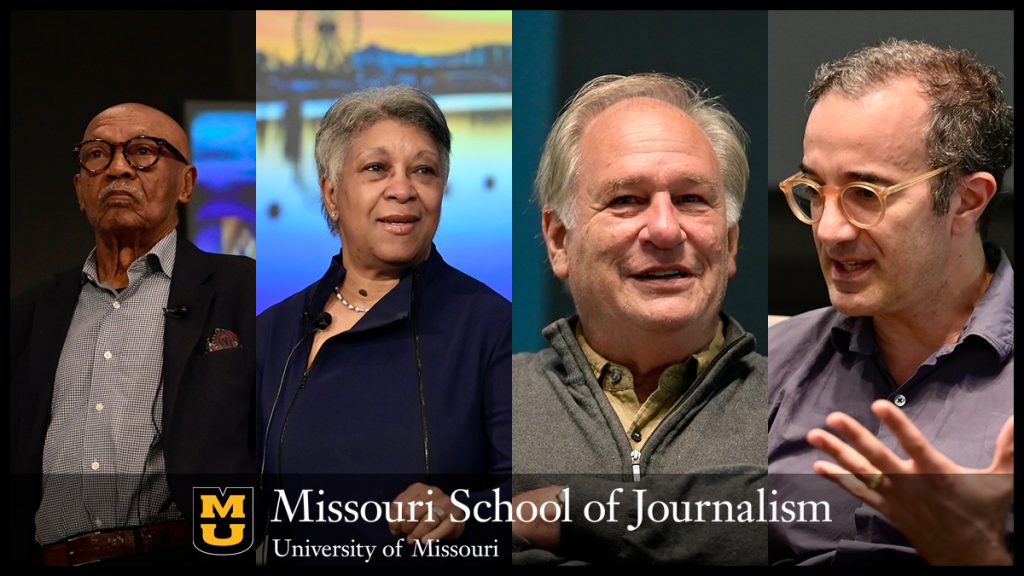
By Austin Fitzgerald
Photos by Nate Brown
COLUMBIA, Mo. (Sept. 26, 2024) — This week, the 2024 recipients of the Missouri Honor Medal delivered master classes to students at the Missouri School of Journalism based on their experiences in journalism and strategic communication before accepting their Missouri Honor Medals.
Honored for distinguished service to the industry, the medalists offered insights and Q&As not only to the public and the School’s faculty, but to students from classes relevant to their areas of expertise.
“The opportunity to have a conversation with industry leaders of this caliber can be a pivotal moment in a student’s development,” said David Kurpius, dean of the School of Journalism. “The Missouri Method means learning on the job in our professional news organizations and ad agencies, but it also means learning directly from the groundbreakers who have set the bar in their fields.”
Read about each master class below, and for more information about this year’s Missouri Honor Medalists, click here.
Seeking to uplift
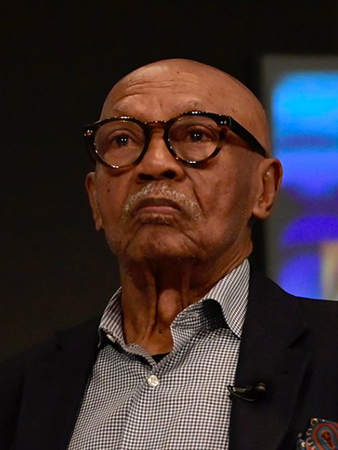
First up was Donald Suggs, who has served as publisher of the largest weekly newspaper in Missouri — the St. Louis American — for 40 years.
“At the American, we have special concerns for the vulnerable and the marginalized,” Suggs said, addressing a community journalism class taught by Associate Professor Elizabeth Stephens, executive editor of the Columbia Missourian. “We seek to uplift the Black community by telling stories that would not otherwise be told.”
One story he told during the master class was his own, recounting how his culturally diverse upbringing and the constant presence of newspapers in his childhood home taught him about the connections between journalism and a just, equitable society. Active in the Civil Rights Movement of the 1960s, he was offered a place on the faculty of Washington University’s dental school — where he would have been the first Black faculty member — before the offer was rescinded due to his race.
His past — and that of his father, whom he called “a brilliant man” with “a deep understanding of quantum physics” who “was never convinced that he was special” — served to underline to students the important role of news in expanding audiences’ understanding of the world beyond the status quo.
“We have to look at things in a larger perspective than how they are presented to us,” he said, noting that the St. Louis American does so through a community focus that avoids stereotypes and easy, canned narratives.
The people at the top
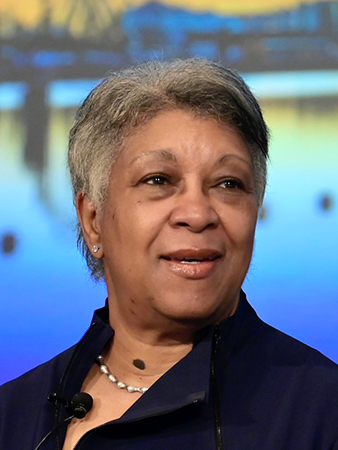
Next was Renetta McCann, a pioneering figure in both media planning and institutional equity in the advertising industry. McCann is currently the chief inclusion experiences officer for Publicis Groupe, part of the same family of companies where she landed her first entry-level job in 1978.
To an audience of PR students taught by Professor Jon Stemmle, McCann laid out a series of principles she considers key to successful career in strategic communication, including an insight into the surprisingly simple nature of leadership.
“The people at the top, they get paid a lot of money, but they’re managing relationships,” McCann said. “What propels you into the top is to lead other people by persuading them to do the work in a certain way.”
She also delved into the nature of power, a topic that intersected with her experience as a Black woman — and mother — who found success in an industry that did not always welcome her achievements.
“Power operates under a condition of asymmetry,” she said. “If you’re in a room and there is asymmetry, then there is a power dynamic present, and you need to understand that dynamic before you make your move.”
But the weight of the discussion did not overshadow McCann’s optimism about the potential for new generations to wield their own power.
“Old power is about currency that you trade in,” she added. “New power is all about a current. What you can do as young people if you really want to be disruptive is understand how you can set up a current that allows things to get done the way you want them to be done.”
Stepping ferociously
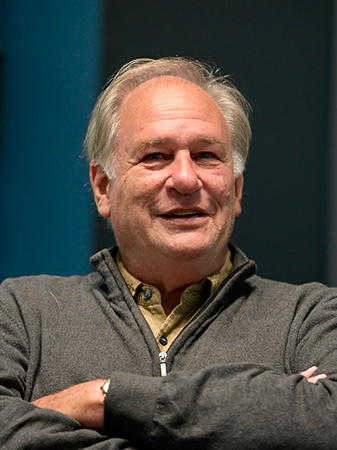
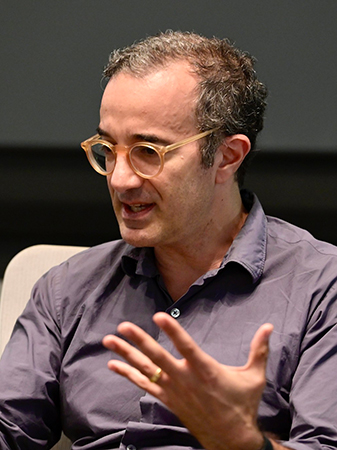
Revolutionary Radiolab co-hosts Jad Abumrad and Robert Krulwich were the last to take the floor. The duo took audio journalism students taught by KBIA-FM’s long-form audio producer, Janet Saidi, through their journey from an unknown experiment in audio journalism to a renowned example of informative, accessible and entertaining science journalism.
“News had never been Gilbert and Sullivan before,” said Krulwich, referring to the novel sonic landscape and tag-team approach to news discussion that made Radiolab famous. ‘We would take an urge, a feeling or an observation, and we would give it a tone. A beat. A harmony. There was no one around to say no.”
Abumrad emphasized the show’s transparent approach to how much its hosts knew or didn’t know, pointing to an instance in which, in preparation for an episode, he took four days to build a model that was denounced by an expert not long before the show was due to air.
“We played the wrong version, played [the expert] yelling at us, and then we corrected it,” Abumrad said. “We decided very early on that we would admit we have all the biases and illusions of normal humans, and that became our style.”
The duo also connected their discussion to the ground covered by McCann and Suggs, urging students to make bold choices that reflect new or underappreciated perspectives.
“There are people who are committed to a new kind of beauty that they instinctively feel needs to be said and that comes out of their lived experience,” Krulwich said. “In that mix of being unheard and having something to say, the only way you can step into the world is to step into it ferociously. If you don’t do that, then what are you doing?”
Updated: October 17, 2024